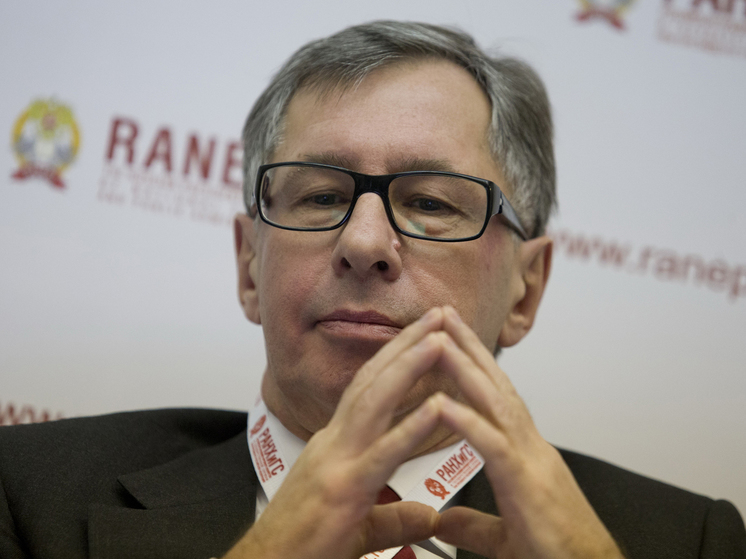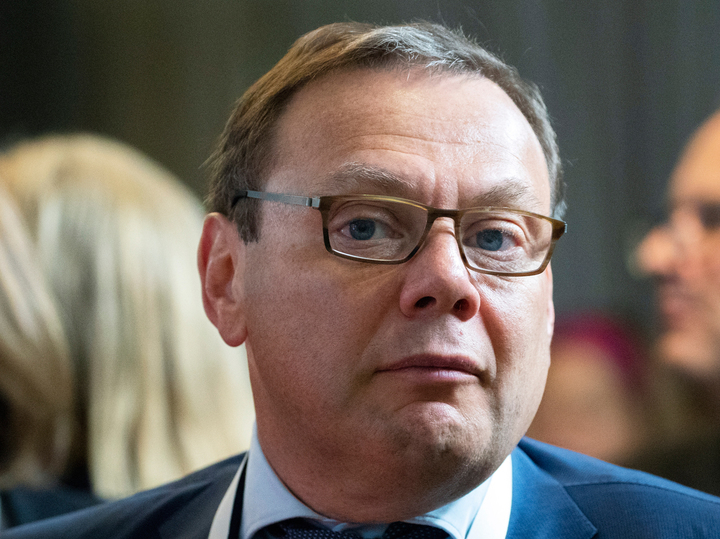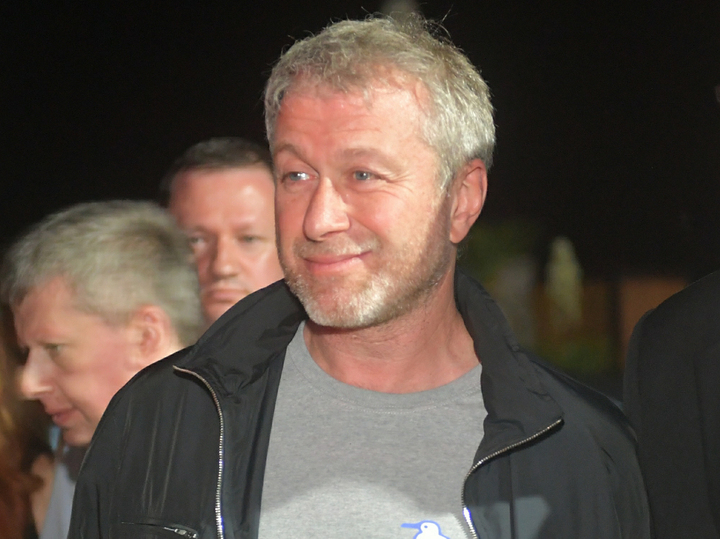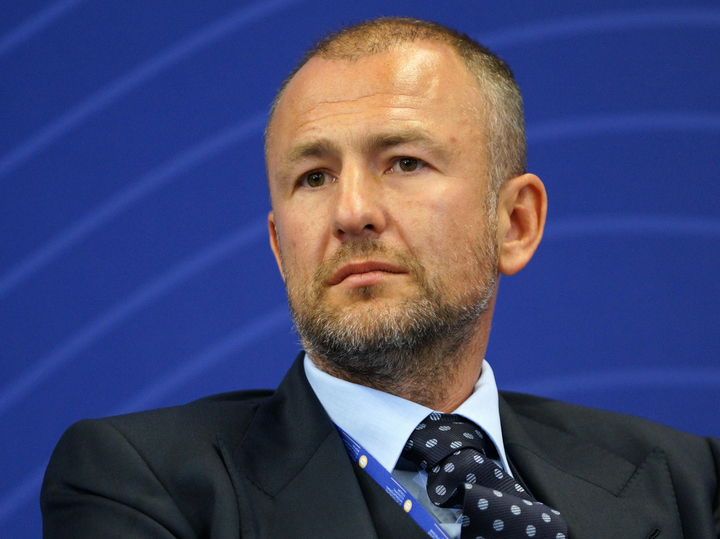The fate of the Russian participants in the Forbes list
News about the life of Russian billionaires who have settled in the West are becoming less and less frequent. One of the latest was a message about the refusal of the Swiss authorities to maintain a residence permit for businessman Andrey Melnichenko. The topic of sanction misadventures of his colleagues on very big money — Mikhail Fridman, Petr Aven, Roman Abramovich and other members of the Forbes list — has become a separate genre and fertile material for research by psychologists, historians, sociologists, political scientists, country experts.
 Peter Aven
Peter Aven
What unites them all? There are mainly two circumstances: firstly, the personal sanctions of the European Union imposed on this group of people, and secondly, severe internal discomfort, a mental gap between expectations and reality.
The essence of the sanctions was succinctly expressed (in an interview with the Swiss edition of Die Weltwoche) by Andrei Melnichenko, founder of the international fertilizer manufacturer Eurochem and the coal-energy company SUEK: “All personal and family accounts are blocked, personal assets and family property are arrested. There was a lot of legal uncertainty around the companies I founded. Operations are strictly limited. As an individual, I am not allowed to enter the EU.”
The first group of Russian “oligarchs” (a term from the text of an official EU decision) were persecuted at the end of winter 2022. On February 28, Brussels added 26 citizens of the Russian Federation to the sanctions list, including co-owners of Alfa Group Mikhail Fridman and Petr Aven, who lived permanently in London.
In its most general form, restrictive measures prohibit European companies and banks from any economic activity with a sanctioned person, as well as businesses owned by him. No funds or resources should be made available to him, directly or indirectly. Meanwhile, these people own not only multibillion-dollar assets in Russia, but also shares in European companies.
For example, Friedman is one of the beneficiaries of the investment holding LetterOne, registered in Luxembourg. Accordingly, what happened was a shock not only for those on the sanctions list. Those who (according to the definition of European officials) “are in the inner circle of Vladimir Putin and support the military special operation.”
“The banks got scared. They treated us the way they treat a leper. No government knew what to do. Suppliers and customers were also confused. There have never been such large-scale sanctions in the history of Europe,” says Andrey Melnichenko.
Meanwhile, the clouds that gave rise to the «thunder in the clear sky» were gathering for more than one year, just NWO became an obvious trigger. And it's not just about measures taken by the European Union.
Mikhail Fridman: «Maybe I should clean the house myself»
Friedman had had trouble with the British authorities before. Back in 2015, when the businessman became a resident of the United Kingdom (a person who lived more than 183 days in one tax year), the government had doubts about the legality of his ownership of the energy company Dea, which was acquired by Friedman and his business partner Herman Khan. And in February 2022, London created a legal framework for sanctions to freeze the assets of Russian businesses and seize the property of those entrepreneurs who naturalized in the UK.
 Mikhail Fridman
Mikhail Fridman
Friedman at that time was consistently in the top 20 local rich (11th in The Sunday Times ranking). In 2016, the Chairman of the Supervisory Board of Alfa Group purchased the Athlone House mansion in the London district of Highgate for 65 million pounds (about $80 million).
On February 25, 2022, Friedman sent a private letter to LetterOne staff assessing the events in Ukraine, which he called a «tragedy» for both sides of the conflict.
“I was born in Western Ukraine and lived there until I was 17,” he said. — My parents are citizens of Ukraine and live in Lviv, my favorite city. But I also spent most of my life as a Russian citizen creating and developing businesses…
I don't make political statements. I am a businessman responsible to thousands of employees in Russia and Ukraine. But I am convinced that (the conflict) can never be a solution.”
The message was made public against the will of the author. The Financial Times referred to Mikhail Fridman as the first Russian entrepreneur to speak out against the conflict.
On February 26, another Russian billionaire, Roman Abramovich, announced the transfer of control of his football club Chelsea to the trustees of the team's charitable foundation. But he did not comment on the events in Ukraine. Well, then off we go.
In March 2022, Friedman told Bloomberg that «unfair» and «unreasonable» EU sanctions effectively froze access to his $11.8 billion personal fortune, and that he had no way to influence the Kremlin (to stop the CBO). In addition, the businessman complained about the catastrophic lack of funds, which did not allow him to pay the servants: “Maybe I should clean the house myself. This is fine. As a student, I lived in a small dorm room with four other men. But 35 years later, this is unexpected.”
In the end, the «man of the world» Friedman found himself under the sanctions of the collective West — the EU, Great Britain, Canada, Switzerland, Australia and New Zealand.
The culmination of his ordeals was the detention in December 2022 by the British National Fighting Agency with Crime (NCA). More than 50 police officers participated in the operation at Athlone House, and at the end of the search, digital devices and an impressive amount of cash were seized.
The entrepreneur (soon released on bail) was suspected of money laundering, conspiring to deceive the Home Office and violating sanctions, in particular the £2,500 per month spending limit set by London. Formally owning huge capital, in fact, Friedman cannot use it and is forced to constantly remain in the humiliating status of a socio-political outcast and a “bad guy”.
Peter Aven: $70,000 for everyday expenses
If we talk about the purely financial aspect of the whole story, then Peter Aven, Fridman's partner in Alfa Group, was much more fortunate. In March 2022, London imposed similar personal sanctions against him, recognizing him as a “pro-Kremlin oligarch” and allowing him to spend no more than 2.5 thousand pounds a month. But already in July, a local court eased the restrictions so that the businessman could pay for security costs, pay off «urgent debts» and maintain his mansions in London and Surrey.
In October, the UK Treasury agreed to release cash totaling £1.16m from Aven's linked accounts, plus £60,000 (nearly $70,000) a month for day-to-day expenses. Among other things, the money was needed to pay for the education of one of the entrepreneur's children in a private school.
Meanwhile, according to The Telegraph, Aven, the owner of an art collection worth £300 million, is still the subject of an NCA investigation on suspicion of violating international sanctions. In March 2022, the billionaire gave a poignant interview to the Financial Times, in which he outlined his plans to stay in London and challenge the restrictions in court. In this sense, he showed himself to be a more strong-willed and creative person than Friedman, although he largely repeated the latter's revelations in an interview with Bloomberg.
“Our business is destroyed. Everything that we have been building for 30 years is now in ruins… Will I now be allowed to hire a cleaning lady or a driver? I don't know how to drive myself … Maybe my stepdaughter will drive? We don’t know how to survive, ”Aven reasoned, sitting at a table with fruit in the two-story kitchen of his elite apartment in London's St. James.
In the same FT interview, the banker expressed sympathy for the people of Ukraine and did not agree that he was close to Putin: “It is very strange to be sanctioned solely because you saw the president. What is happening now is beyond my comprehension. We tried to stay out of politics. At meetings with Putin, I represented Alfa Group, not myself. In order to do business in Russia, in any case, contact with the head of state is necessary.”
In British realities, Aven was clearly rescued by his lawyers: their attempts to achieve a complete defrosting of the entrepreneur's accounts bore fruit, the London Court found the lawyers' arguments reasonable. As for European sanctions, it was a priori pointless to challenge them: about 30 wealthy Russians unsuccessfully tried to do this, who, according to the firm opinion of Brussels, «benefited from their connections in power.» A miracle never happened.
Roman Abramovich: heading east
The most famous Russian billionaire in foggy Albion was not helped by his active mediation in the negotiation process between Russia and Ukraine. Although largely thanks to the efforts of Abramovich, an exchange of prisoners was carried out (including the release of British mercenaries), this did not bring any relief on sanctions (from the UK, the European Union and Canada).
 Roman Abramovich
Roman Abramovich
Faced with exactly the same personal restrictions that were imposed on Fridman, Aven and other «Russian oligarchs close to the Kremlin», Abramovich literally headed east. Back in August 2022, his 55-meter yacht Halo and support vessel Garcon anchored in the Aegean coastal region of Göcek, where two mega-yachts of the former Chelsea owner, the 140-meter Solaris and the 160-meter Eclipse, have been located since the beginning of the sanctions.
Thus, almost the entire “Abramovich fleet” worth $1.2 billion has gathered off the coast of Turkey. Here, the businessman is not threatened with confiscation of his ships: in April, it was offered to the UK by the authorities of Antigua and Barbuda, an island state in the Caribbean Sea, where Halo and Garcon were then moored. According to local laws, property cannot be seized unless the person has committed a crime in the country. In July, both ships left the waters of Antigua and Barbuda.
In December, Abramovich rented a mansion in Istanbul on the banks of the Bosphorus with a monthly rent of $50,000. The building was built about 50 years ago and has its own pier.
The businessman will have enough money for this kind of thing for a long time, but his general financial condition is no longer what it used to be: according to Bloomberg, in 2022 it has decreased by more than twice — from $ 18 billion to $ 7.8 billion. Abramovich lost the most out of about two dozen Russian billionaires from the Bloomberg Billionaires Index.
The £2.3bn he made from the sale (last May) of Chelsea Football Club ended up in a frozen account. And, although the British authorities decided to transfer these funds to the Ukraine aid fund, the matter never got off the ground — because of the name «Abramovich» alone.
«There are complexities and delays associated with political approval both between London and the EU and within the UK,» explained the charity's acting CEO, former Unicef UK chief executive Mike Penrose. There are several hurdles to overcome before Kyiv receives any money, he said, and it is not clear when that will happen. There is no doubt about one thing: if it were about the means of (conditionally) Bill Gates, and not the «Russian oligarch», no problems would arise.
Andrey Melnichenko: «You are now a villain — that's all»
«Features of arbitrariness worthy of Kafka's pen» — this is how the Swiss edition of Die Weltwoche described the story of Andrey Melnichenko. According to the newspaper, the owner of a fortune of $ 25.2 billion, «quietly living in Switzerland with his family, unexpectedly fell under the restrictions of the European Union due to the poorly focused reaction of the West to the Russian-Ukrainian conflict.» Then the country's government (Federal Council) «copied» the EU sanctions list, and the Swiss Secretariat for Migration refused to keep the businessman with a category C residence permit (residence permit for five years), under the pretext that he had been outside Switzerland for a long time.< /p> Andrey Melnichenko
Andrey Melnichenko
The businessman's lawyers challenged the decision in court, noting that it «is based on an incorrect and incomplete establishment of legally significant facts, issued in violation of federal law and, therefore, is invalid.»
According to Melnichenko's PR director Alexander Byrikhin , the Swiss authorities are well aware that since March 2022, the entrepreneur “could not reside in the country” due to the European entry ban and inclusion in the relevant lists of Schengen countries.
Meanwhile, the day before entering the European sanctions list, the billionaire left the board of directors of Eurochem and SUEK, and ceased to be their beneficiary. In April 2023, he announced plans to regain control of these assets, one of which (SUEK) is one of the world's leading coal mining and energy companies.
Melnichenko settled in Switzerland with his family back in 2009. She, in his words, “looked like an extraordinary business-friendly country”, distinguished by the guarantee of private property, democracy and freedom.
“Everything is clear and measured: just follow the laws and pay taxes … And when crisis, it became absolutely clear that if the public and politicians do not know who you are, they will paint your image with the help of stereotypes,” Melnichenko told Die Weltwoche.
“Did I think that in Switzerland, a country with a centuries-old tradition of neutrality, they would look at me as an alleged confidant of the President of Russia? — he shared with the newspaper his cry of the soul. – The EU Official Gazette simply writes that you are now a villain — that's all.
It is clear that the purpose of economic sanctions is to put pressure on the political regime of another state. However, it is not clear how blocking my assets in the EU and Switzerland, or destroying the very complex economic mechanisms that I have built over the past 30 years, can help achieve these goals. This is just absurd…
EU legislation states that sanctions are a restrictive measure, not a punishment. It is not true. You are deprived of property rights, deprived of freedom of movement.”
The businessman also recalled that Brussels imposed personal sanctions on his wife, Sandra Nikolic, who, firstly, is a citizen of Croatia (and therefore of the EU), and secondly secondly, does not participate in his entrepreneurial activities in any way.
“In general, Europe can no longer be considered a safe place for foreigners,” Melnichenko summed up his personal experience. “Here, you can be persecuted because of your success in business and your nationality.”
A cruel lesson
Well, a cruel lesson. The Russians on the Forbes list, who once relied on the standards of Western civilization, will have to realize forever: in relation to them, «the oligarchs from Putin's inner circle», these standards no longer apply.
But the question arises — how to live further in Britain or Switzerland, if you are obviously a «bad guy», even if built into the local way of life? How to live if at any moment, literally with one click of your fingers, you can be deprived of money, securities, real estate, turning you into a useless, forced to humiliate yourself before the authorities of a rentier? After all, this is no longer a haven, not a “safe haven”, but that unpromised land that burns underfoot.
“Each of these “guys” has his own special history of relations with a particular host country,” says Nikita Maslennikov, a leading expert at the Center for Political Technologies. – They are related precisely to personal sanctions that turned their lives upside down and blew up their brains.
They suddenly realized that they are not untouchables, that huge money is useless in this particular case. And this is a lesson for all business circles in Russia, which are faced with the question of a strategic choice, reorientation to friendly jurisdictions.
If you want to do big business (which is global by its very nature), achieve success in this field, you should not tightly associate yourself with only one side of the world — the Euro-Atlantic region.
And this is not so much about current geopolitical circumstances, but about things of a timeless nature. Of course, the countries of Greater Asia also have their own risks, for example, the same risks of secondary sanctions. But, at least from the standpoint of elementary personal security and predictability of behavior (on the part of business partners and authorities), this choice today looks clearly more promising for Russian entrepreneurs, Maslennikov summarizes.


